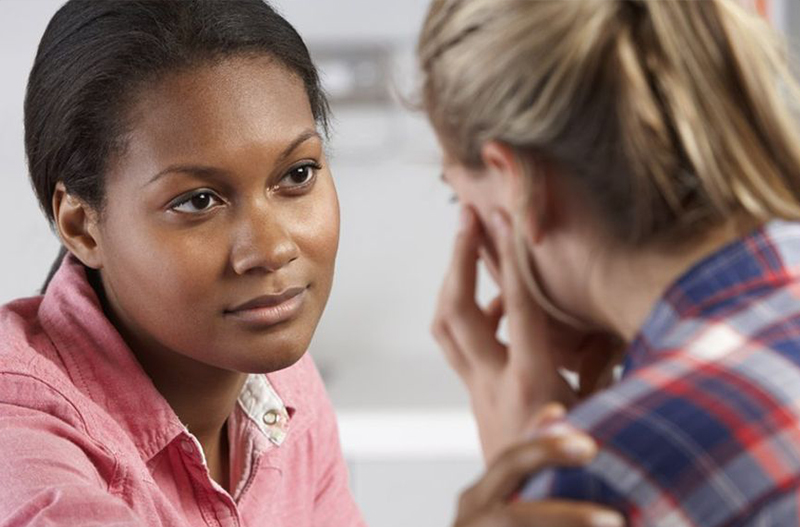Grief, loss and Bereavement
If you have recently lost someone important in your life, chances are you’re going through a difficult time of adjusting to the immense change taking place in your life right now. Grief can shake up everything – your personality, your beliefs and even your sense of reality. At its very basic, bereavement is used to describe the period of mourning and grief that people go through after someone close to them dies. There is no standard time allocation and there is no wrong or right way to feel during the period of grief – everyone goes through this experience in their own unique way.
Grief and morning, although normal, can be expressed in a wide range ways. Some individuals withdraw and start living a private life, some get angry, while others just become numb. In some cases, grief can transition into a more serious condition such as depression. During this time of grief, bereavement counselling can provide the much-needed support. Talking about your loss allows you to adjust to your new life and all the changes that come along.
The main aim of bereavement period is to try and find a way forward into a completely new life without the person who passed away. This might sometimes take a long time and the road will be filled with bad times and good times. Sometimes you might even think it’s not possible anymore to regain a meaningful life without the person who passed away. You might experience emotions like denial, despair, anger, and anxiety.
Stages of bereavement
It’s generally accepted that bereavement involves five main stages i.e. denial, anger, bargaining, depression, and acceptance/moving on. These stages can be experienced by people who have lost a loved one or those who have been informed that they might die soon or have a terminal illness. Let’s take a close look at these stages.
Denial
Denial is the first stage of grief, and it occurs when one refuses to accept that the news of the impending loss or the actual loss is true. At this point, the individual may simply ignore all the evidence supporting the loss or impending loss and may try to continue living as if the situation doesn’t exist. Denying the existing truth may be an unconscious or a conscious choice and may last for varying periods of time. However, when the individual is presented with the body, they often have very little choice other than moving into the next stage of anger.
Anger
Overwhelming anger and sorrow are very common for people who have lost their loved one or have been informed about their own fate with death. Individuals may be hungry at the medical community, their doctor, themselves, their friends, their relatives or even the deceased. This anger is often irrational and may be consuming and overwhelming. Other emotions associated with this stage may include sorrow, guilt, hopelessness, despair, and longing. The extent of these emotions depends on the relationship between the individual and the deceased. This anger, however, burns out eventually and the individual goes into the bargaining stage.
Bargaining
This stage is where a grieving individual tries to bargain some sort of deal with his/her religious deity. Individuals suffering from a terminal illness may try out bargains like �if you just let me live, I will….” Or “If you just take away the pain, I will….” Thos watching their loved one on their death bed may attempt bargain like “If you just let my brother live, I will….” There might also be irrational bargaining where an individual who has lost a loved one begs them to come back to life. When the bargain doesn’t work, an individual may enter the depression stage.
Depression
When someone is facing death, depression might come in as the first stage of acceptance. Individuals in this stage may feel anxious, sad and some level of guilt or regret. Individuals who have lost their loved ones also go through the same emotions especially when they realize the situation is irrevocable.
Acceptance
Individuals facing their own death might come to accept the reality even before their friends and relatives. The acceptance may come as early as years or months before the death actually occurs. The acceptance might influence how the individual lives their lives moving forward. Those who recently lost their loved ones come to accept that they will not be coming back and they may equally make major life changes.
How can Bereavement counselling help?
Bereavement counselling therapy is designed to help grieving individuals cope with the loss of their loved ones more effectively. More specifically, counselling can help people understand the mourning process, help resolve any areas of conflict and adjust to the new realisation and address any arising issues of suicidal thoughts and depression.
You probably will never stop missing the loved one that you lost, but having the right support and enough time will enable you to piece together your life again. Bereavement counselling can help you get back to normal functioning and regain your happiness with time. Something you’ve to understand is that turning to counselling after losing a loved one is not equal to admitting your weaknesses; it only means that you’re strong enough o seek for help when you need it.

